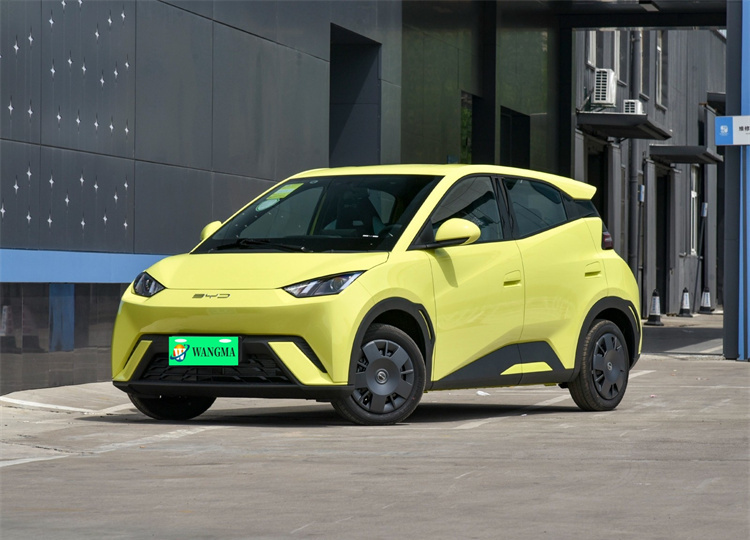
Aug . 10, 2024 05:25 Back to list
Exploring the Future of Sustainable Transportation with Electric Vehicles and Their Impact on Society
The Rise of Electric Vehicles Revolutionizing Transportation
The automotive industry is undergoing a significant transformation as the world increasingly shifts towards sustainable technologies. Central to this revolution is the electric vehicle (EV), a mode of transportation that promises to reshape how we think about mobility, energy consumption, and environmental responsibility.
Electric vehicles, powered primarily by electric motors and rechargeable batteries, present a cleaner alternative to traditional fossil-fuel-powered cars. The appeal of EVs lies not only in their reduced emissions but also in their efficiency. Electric motors convert over 60% of the electrical energy from the grid to power at the wheels, whereas conventional gasoline vehicles convert only about 20% of the energy stored in gasoline. Consequently, EVs offer a promising solution to the urgent challenges of climate change and air pollution.
One of the most compelling reasons to consider an electric vehicle is the environmental benefit. Transportation is one of the largest contributors to greenhouse gas emissions globally. By switching to electric vehicles, we can significantly reduce our carbon footprint. Many governments are already recognizing this potential and have implemented policies to encourage the adoption of EVs. For instance, countries like Norway have set ambitious targets to phase out the sale of gasoline and diesel cars by 2025, pushing the market towards fully electric alternatives.
Battery technology is the cornerstone of the growth of electric vehicles. The advent of lithium-ion batteries has allowed EVs to become more practical, with improving ranges and decreasing costs. Innovations in battery chemistry and production processes mean that newer models can travel further on a single charge, addressing one of the main concerns consumers have about electric vehicles range anxiety. Some modern electric cars can now exceed 300 miles on a single charge, making them suitable for daily commutes and longer trips.
electric vehicle

Charging infrastructure is another vital component in the widespread adoption of electric vehicles. Governments and private companies are investing in expanding charging networks to provide convenient locations for EV owners to recharge. Fast chargers are becoming increasingly common, capable of replenishing an EV battery to 80% in just 30 minutes. Furthermore, the rise of home charging stations allows consumers to charge their vehicles overnight, providing unparalleled convenience.
Despite these advancements, challenges still remain in the mainstream adoption of electric vehicles. The initial purchase price of EVs can be higher than that of traditional vehicles, although this gap is narrowing as technology advances and production scales up. Additionally, the sourcing of materials for batteries, such as lithium and cobalt, raises ethical and environmental concerns that the industry must address. Sustainable mining practices and the development of recycling methods for batteries are critical to ensuring the lifecycle of EVs is as environmentally friendly as their operation.
The electric vehicle market is projected to grow substantially in the coming decade. Major automakers are investing billions into EV technology and pledging to electrify their fleets. Companies like Tesla, Ford, and General Motors are making headlines with ambitious plans, aiming to lead the charge towards a sustainable automotive future.
In conclusion, electric vehicles represent a pivotal shift in transportation, embodying the needs for sustainability, efficiency, and technological innovation. As advancements continue and infrastructure grows, EVs are poised to become a dominant force in the automotive industry, paving the way for a cleaner, greener future. Driving an electric vehicle is not just about adopting a new mode of transport; it is becoming a crucial part of a larger movement towards a sustainable world.
-
New Energy Vehicles: High Endurance & Cost-Performance
NewsAug.27,2025
-
New Electric Vehicles: Explore BYD Cars & Future Energy
NewsAug.26,2025
-
Buy Diamond Plate Tin Factory Direct | Quality & Durable Metal
NewsAug.25,2025
-
BYD Electric Cars: Innovation & Performance EVs
NewsAug.24,2025
-
High Cost Performance: Stylish, High Endurance Devices
NewsAug.23,2025
-
Cheap Car & EV Deals: Used, New Energy & Luxury Electric Vehicles
NewsAug.22,2025